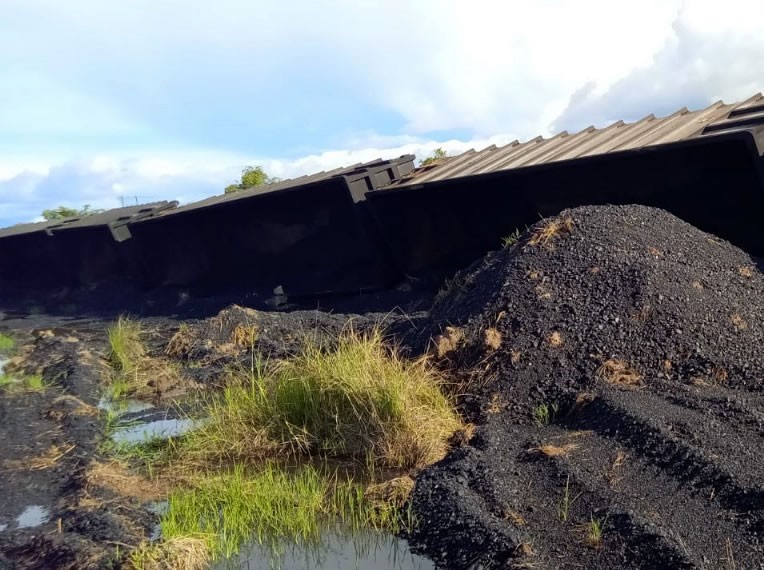Background
Train derailments accidents are comparatively rare but their consequences are often times grave, involving injuries, loss of life and damage to properties and valuables. Early January 2024, we received a notification from a client transporting a cargo of coal loaded onto (112) rail wagons of 63MT each that derailed in Mandimba District, Tobue region, MOZAMBIQUE.
It was reported that during the transit, the train experienced a devastating derailment, causing 35 wagons to fall off and spilled their cargo. The remaining (77) wagons were safely salvaged and transported to Nacala where the cargo was stowed pending shipment.
The underwriters were informed about the loss and appointed us to organize a joint survey in order to investigate the circumstances, nature, cause and extent of damage as well as activating loss mitigation measures.
In the world of marine surveys and claims handling, unforeseen events such as accidents pose significant challenges. However, through strategic planning, prompt attendance to accidents scene and effective collaboration; losses can be mitigated, and valuable lessons learnt. This case study highlights the successful mitigation of losses in a derailment accident.
Survey and Assessment
Despite the place being in the remote Tobue area of Mandimba District, within couple of hours our surveyor arrived at the accident site for a pre-survey before the joint survey. We gathered facts by interviewing key personnel including train crew and witnesses. We thereafter schedule a joint survey inviting stakeholders and interested parties with a view to accomplishing the following;
- To identify the liable party
- To establish relevant contributory factors
- To learn from the incident (LFI) and avoid recurrence of similar accidents in future
- To activate loss mitigation measures and assist the team in recovery/salvage prospects.
Challenges
Other than the remote location of the accident scene, one of the biggest challenge we faced was cargo owners rejecting the cargo in its entirety. However, through robust engagements with all parties. We were able to reach an agreement to release the cargo to owners at a fairly reduced fee. The cargo was ultimately collected from the accident scene as a loss mitigation and to further avoid environmental exposures.
Salvage Operation & Recovery Measures
With our In-house Salvage and Recovery team spearheading the negotiations which culminated in the retention of the damaged coal by the owners at a fairly reduced price, significantly mitigating the overall loss to approximately 40%. This successful salvage operation was a testament to the expertise and determination of our team of surveyors and claims handlers involved.
This case underscores the importance of proactive risk management, swift response, and collaborative efforts in the realm of cargo surveys and marine claims handling. By leveraging expertise and resources, even in the face of adversity, successful outcomes can be achieved and ultimately safeguard the interests of insurers, insured, and stakeholders alike.


